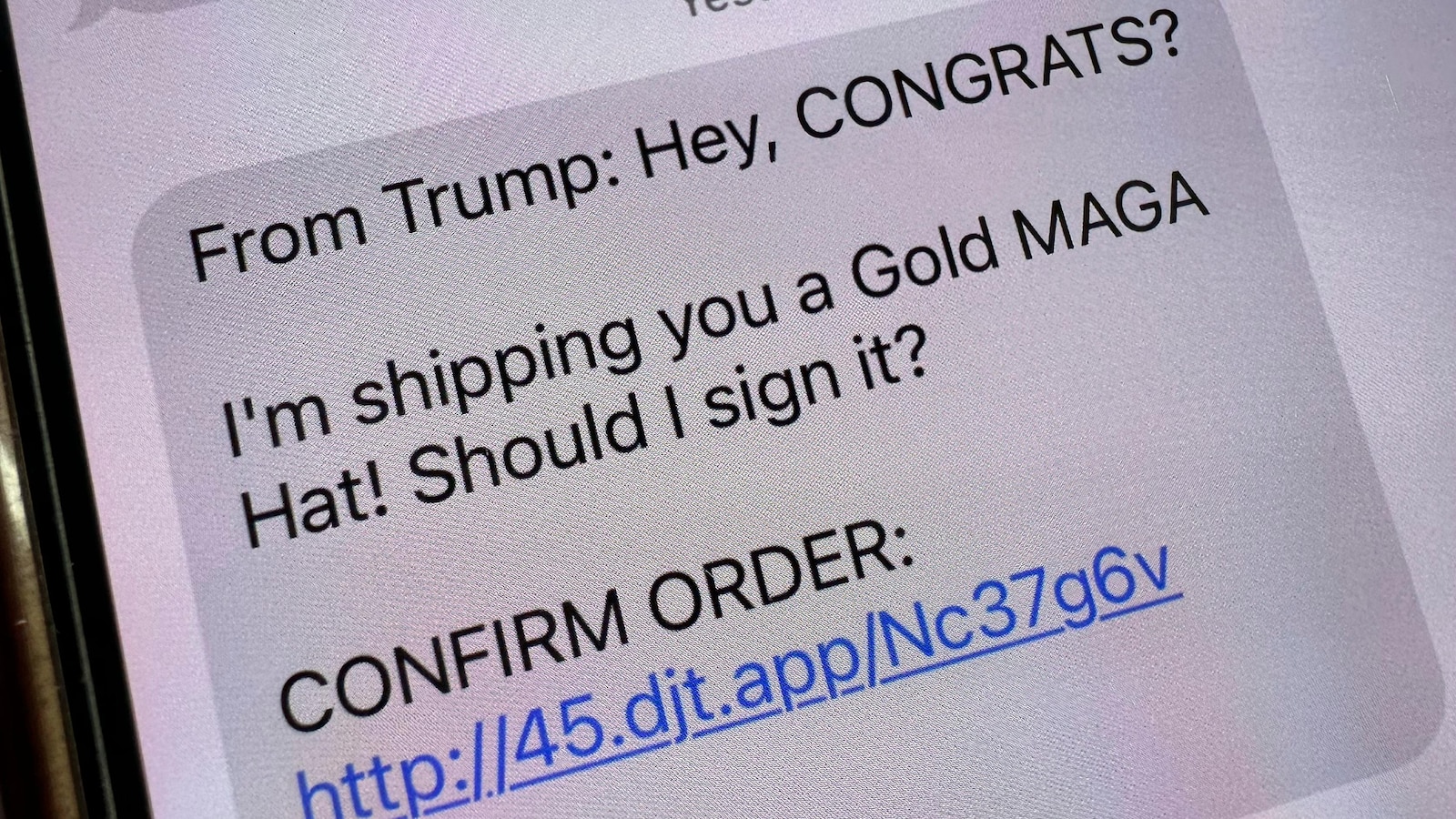The Rise of Text Messaging in Campaigns
With traditional advertising becoming more costly and regulated, both Democratic and Republican campaigns have turned to text messaging as an aggressive outreach strategy. For just a small contribution, supporters can receive personalized messages, updates, and calls to action directly from their preferred candidates. This approach allows campaigns to connect with voters on a more personal level, often resulting in a barrage of messages that can feel overwhelming.
At a recent rally in Atlanta, Kamala Harris supporters expressed mixed feelings about the relentless texting. While some like Robin Beyah considered the messages harmless and even inviting, others found them annoying. “It’s background noise,” said Ebenezer Iyasu, reflecting a sentiment shared by many who are bombarded with political texts daily.
The Double-Edged Sword of Text Campaigning
The effectiveness of text campaigns is undeniable. Many supporters, despite their annoyance, acknowledge that these messages serve as crucial reminders and calls to action. For instance, Sarah Wiggins, a graphic designer and Harris supporter, prefers in-person interaction but admits that the texts help keep the campaign at the forefront of her mind.
Conversely, Trump supporters have expressed similar frustrations, noting that while they appreciate the effort, the constant influx of political messages can be excessive. “They’re more annoying than anything else,” stated Morse Lawrence, a physician assistant from Arizona.
Strategies for Engagement
Both campaigns leverage urgency in their messaging, warning supporters that time is of the essence. Messages often feature phrases that create a sense of immediacy, urging voters to contribute quickly or risk missing out on exclusive offers, such as limited-edition merchandise or personal interactions with the candidates.
For Trump’s campaign, texts sometimes take a unique approach, framing the message as coming from family members or allies to create a sense of intimacy. Trump Jr. has been known to send messages that urge quick donations with an informal tone, promising personal touches like signed merchandise.
In contrast, Harris’ campaign focuses on building a narrative of urgency against a backdrop of political threats, urging supporters to donate in light of perceived challenges from the opposition. One message even referenced a town hall appearance, emphasizing the importance of donations to keep pace with Trump’s fundraising efforts.
Navigating the Texting Landscape
While many Americans are accustomed to receiving these texts, they must also navigate a complex landscape of political messaging. Experts warn that not all messages come from legitimate sources, and some may be designed to mislead or collect personal information. Recently, reports have surfaced of fraudulent messages sent to young voters, threatening severe consequences for voting, highlighting the need for vigilance among recipients.
Embracing the Digital Age
Despite the challenges, many supporters, like Beverly Payne from Georgia, embrace the text messages as part of modern political culture. After volunteering for Harris, Payne enjoys engaging with the campaign via text, often responding to every message she receives. “It’s part of our culture now, we’re all used to it,” she remarked, underscoring the shifting dynamics of political engagement in the digital age.
As both campaigns ramp up their efforts in the final stretch leading to the election, it’s clear that text messaging will remain a critical component of their strategies. For better or worse, these digital interactions are reshaping how candidates connect with voters, and the future of political communication is undoubtedly evolving with every ping of a smartphone.


